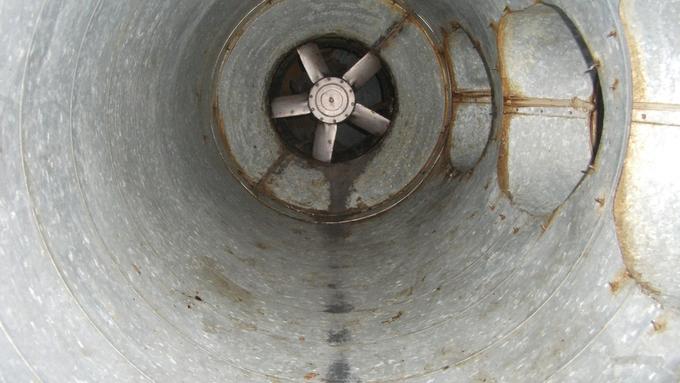Grease duct cleaning - Leeds Sheffield York
15th January 2016
Grease duct cleaning - Leeds Sheffield York
Kitchen extraction systems cleaned and ventilation ductwork degreased as required to comply with environmental health regulations and fire insurance specifications.
Hazards of Dirty Kitchen Ventilation Systems
Even the most efficient extraction filters cannot remove all traces of grease and dirt from the air. Over time, a layer of grease and dirt is deposited on the surfaces of ventilation ducts, canopies and extractor fans. Not only does this cause an environmental health hazard by providing a breeding ground for bacteria and foul odours, it also reduces the efficiency of your extraction system and is a major fire risk.
It is therefore essential to carry out regular cleaning of your kitchen extraction and ventilation systems as determined by an appropriate risk assessment. Failure to do so could lead to a breach of the Environmental Health Regulations and could invalidate your fire insurance policy.
Crystal Surface Ventilation Degreasing Service (Nationwide)
Crystal Surface provides a ventilation degreasing service that covers all aspects of extraction systems cleaning. Our experienced cleaning teams are fully trained to clean all the elements of your ventilation system to the high standards required to ensure a safe and healthy environment for your staff and customers.
To arrange a site assessment, please contact Crystal Surface by phone or email.
The Heating, Ventilation Contractors Association is the leading professional body in Britain for building services contractors. Founded in 1904 its guidelines are the benchmark to which we adhere. All of our work is to HVCA TR19 standard. Below are extracts from HVCA TR19 (Guide to Good Practice Internal Cleanliness of Ventilation Systems):
7.1 The kitchen extract system presents particular hazards due to the potential for the accumulation of grease. Accumulated grease within an extract system forms a hidden combustion load. Under certain circumstances flame or very high temperature within the duct can ignite the grease causing fire to spread rapidly through the duct. Flame and heat within the duct can ignite surrounding materials at various points along the ductwork path and transfer fire in ways that are difficult to predict and control by designers, installers and ultimately fire fighters.
7.4 Kitchen extract systems are liable to internal fouling by grease and oils. It is usual for the systems to be protected by grease filters, but these differ widely in terms of efficiency of grease removal and of barrier to flame. Total grease removal is not normally feasible and therefore fouling of systems downstream will occur to a greater or lesser degree.
7.5 Grease deposits within systems also pose hygiene, odour, vermin and mechanical efficiency hazards. Poorly designed and installed or damaged ductwork can leak grease, thus extending the fire risk, hygiene, odour and vermin hazards. Also, where ductwork distorts under fire conditions, burning grease can leak out and spread the fire to duct surroundings.
7.10 It is essential that a kitchen extract ductwork system, and canopy/extract plenum, is provided with access panels* of sufficient number, quality and size to enable unrestricted access for regular cleaning and inspection of the internal surfaces and in-line components.
Frequency of Cleaning
7.35 The need for specialist cleaning of extract systems will depend on the level of usage of the cooking equipment, types and quantity of cooking and other risk factors such as vulnerability of the system to ignition and of the building and its occupant/users to system fire, hygiene, vermin and mechanical hazards. Typical cleaning intervals are shown in Table 11:
Table 11
Heavy Use 12-16 hours per day - 3 monthly
Moderate Use 6-12 hours per day - 6 monthly
Light Use 2-6 hours per day - 12 monthly
W: www.crystalsurface.co.uk
E: nick@crystalsurface.co.uk
T: 07943 402 312
<< Back to Case Studies
